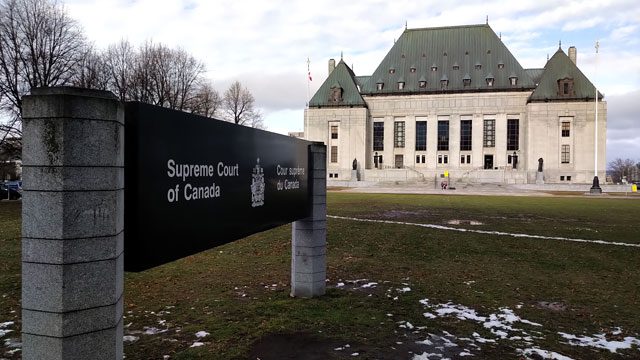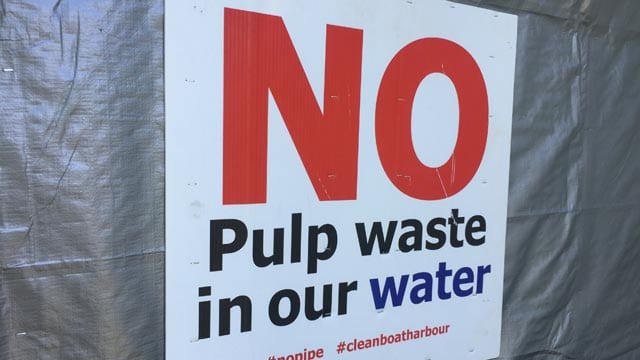
The Supreme Court of Canada has dismissed the province of Nova Scotia’s appeal on its duty to consult with a Mi’kmaq community on how public money is provided to the Northern Pulp mill’s effluent treatment plant.
The court typically doesn’t provide reasons, and in a news release issued Thursday it said only it has dismissed the appeal with costs.
In November, Nova Scotia Supreme Court Justice Timothy Gabriel ruled that if the province becomes a financial backer of the effluent treatment plant, that would raise questions on whether the level of funding would mean “upgraded safeguards” in light of what the people of Pictou Landing First Nation have endured.
Gabriel said if the government consults on environmental aspects of the plant’s construction, it should take a “holistic” approach and also consult on the financing it is willing to provide. He concluded the Crown has a duty to consult with the First Nation, including on the issue of whether funding should be provided at all.
Brian Hebert, the lawyer for Pictou Landing First Nation, said the band was happy with Thursday’s dismissal.
Hebert said in an email that in denying the province’s leave to appeal, the Supreme Court was giving “added weight” to the decision by the Nova Scotia court, even though it was not endorsing the lower court’s ruling.
“It is signalling that the province’s concerns that the decision would wreak havoc on governments by forcing them to consult on every single government funding decision was overblown,” said Hebert.
He added the costs awarded by the court would be quite modest.
“At least now other Indigenous communities won’t need to waste time fighting with government to convince them there is a duty to consult if the government is considering a decision to fund a project that could adversely impact the community,” Hebert said.
In its response, Nova Scotia’s Office of Aboriginal Affairs said the provincial government takes its duty to consult with the Mi’kmaq “very seriously.”
“Our consultation with the Pictou Landing First Nation regarding Boat Harbour remains ongoing,” the office said in an email.
“The leave to appeal was intended to seek clarity on a point of law concerning the scope of the duty to consult in relation to the Northern Pulp mill and funding. This decision does not impact our ongoing consultations.”
Before launching the appeal, Premier Stephen McNeil told reporters that while his government takes the duty to consult seriously, it didn’t believe the concept applied in this case.
“We consulted with Pictou Landing First Nation when it came to closing Boat Harbour,” McNeil said in early December.
“We’ll be dealing with them when it comes to cleaning it up, but when it comes to dealing with the liability associated with that mill, that is the responsibility of government.”
Later that month, McNeil announced the province had rejected Northern Pulp’s plan for a new treatment system that would see it pump treated effluent into the Northumberland Strait.
Production was subsequently shut down at the mill after the province enforced legislation that closed the current effluent treatment facility and treatment lagoons at Boat Harbour, N.S., on Jan. 31.
McNeil’s Liberal government made the commitment to Pictou Landing in 2015, after five decades of the wastewater flowing into the estuary on the edge of the reserve.










